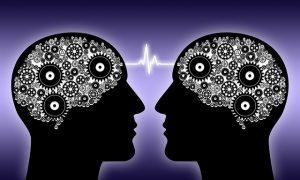Our world was shaped by science. When everyone thought that a simple thunderstorm was an act of an angry god and not clouds which were over-saturated with water, life was a bit harder for humans. Diseases, the plague, all sorts of biological and atmospheric events were often attributed to angry gods or ones who were at least, not satisfied with their subjects.
Science changed that. When scientists explained, through the ages, how our Earth works, how some parts of our universe work, people were not always thrilled by it. Some died for it, others were glorified. Regardless, we got to where we are through science.
Some people, when they think of science, they think of people in various hazmat suits, working on who knows what. But, science is so much more than that. Science is used in our everyday lives. Where, you might ask. Well, everywhere. Here is how and where we use science in our everyday lives.
Math

Math is used whenever we think about purchasing an object and then realize that upon purchasing that object, we would be left with little to no money. Every time when we are about to make a financial transaction, we use math. Math is frequently used in sports betting when you decipher the odds and how much you could win if you use a Bet9ja Promotion Code, as well as lose. We also use math whenever we calculate something, like time, how much time we would need to get from one place to another, as well as when we are discussing quantum mechanics with our friends. For most of us, though, math is subtraction, especially after making a purchase.
Chemistry
We cook, we use chemistry. The act of cooking in itself is a chemical reaction. When we use deodorant, that is also a chemical reaction. Starting your car, that is a chemical reaction, if there ever was one. All of our batteries are based on elements which interact with one another, thus chemical reactions. Using your phone, it even being on prompts chemical reactions.
Physics
Physics, the science of matter and fundamentals of our universe. It is used every single time we move. Playing pool is an extreme example of using physics and geometry. Looking at the stars, understanding what they are, is understanding physics. Every time you use kinetic energy, to move, whether yourself or something else, you are using physics.

Psychology
The study of the human mind, thoughts, emotions and everything else related to our mental aspects. Every time you want to say something to someone, but realize that it might hurt that person, agitate them, make them nervous or angry, or simply ruin their day, and stop yourself, you are applying psychology. Simple acts of empathy, despite your own troubled emotional state, are also applied acts of psychology.
Zoology
Interacting with animals in our daily lives, strays and domesticated animals, is applications of zoology. Whether you pet your neighbor’s dog or help a mother of a couple of kittens by feeding her and providing her with shelter, you are applying zoology.
Most of the time, we are not aware that we are practicing science, as we are not aware of our neurons firing multiple hundreds of times when we just want to move our fingers. Not being aware, however, does not mean that we are not applying science in our everyday lives.

